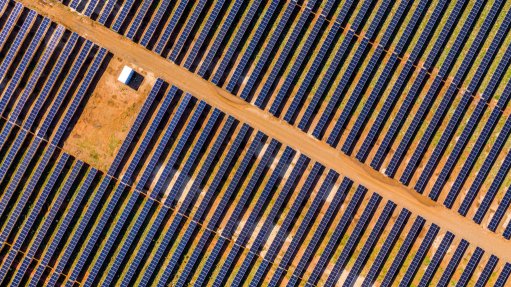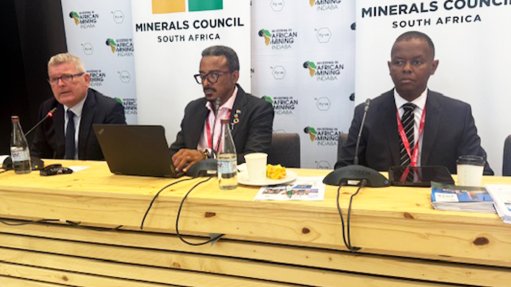Emigration silver lining
Alan Knott-Craig Jnr, the namesake son of the former boss of telecoms giant Vodacom, wrote in his 2008 book that emigration will never beat living and working in one’s own country. As an illustration, he said those who settle in foreign countries miss little things such as the regular “remember when we were at varsity?” conversations with their peers and also face more serious matters like the lack of a long credit history, which is often required for big-ticket purchases.
In her celebrated novel, Americanah, Nigerian-born writer Chimamanda Ngozi Adichie tells of how African immigrants are often rejected by officialdom in the developed countries they move to, resulting in their “being removed” (a popular euphemism for deportation). Where officialdom embraces them, the danger of “rejection” by the unique character of their adopted country always lurks. In Americanah, the protagonist eventually traces her feet back to her native Nigeria, having failed to come to terms with American-ness.
Yet, Africans have been emigrating in droves for the longest time and the 2022 Africa Youth Survey, funded by Mzansi’s own Ichikowitz Family Foundation, found that 52% of Africans aged 18 to 24 want to emigrate, with the main push factors being economic strife, insecurity, corruption, political intolerance and poor education systems. The figure is higher in some countries, being 75% in Nigeria and Sudan and 66% in Angola and Malawi.
I came across a Twitter thread on this subject recently where one of those who commented quipped that moving abroad – even to take up menial employment – has become a major achievement that trumps graduating from our universities. That’s the depth to which our political overlords have dragged our countries.
There is a silver lining, though. Africans always khumbule’khaya; we don’t turn our backs on our home countries. The estimated 160-million people who were born on the continent but now live in other parts of the world remit about $95.6-billion to their home countries each year – an amount that is equivalent to between 2% and 3% of the continent’s gross domestic product and supports the living costs of about 200-million relatives, according to the latest statistics from the World Bank. Sub-Saharan Africa accounts for $49-billion, and North Africa $46.6-billion.
The $95.6-billion figure is for 2021 and an increase is expected not only when the 2022 stats are collated but also well into the future, prompting African Development Bank president Akinwumi Adesina to say at a forum the continental lender convened in Abidjan, Côte d’Ivoire, in December: “The African diaspora has become the largest financier of Africa. And it is not debt; it is 100% gifts or grants, a new form of concessional financing that is the key for livelihood security for millions of Africans.”
Given that the flow of remittances is consistent and that the actual figures are increasing, Adesina said at the December forum that African countries should securitise these funds to promote investment in infrastructure.
Adesina’s idea is spot-on. Similar initiatives are already being implemented in four countries: Ethiopia, Ghana, Kenya and Nigeria. Readers of this column will recall that, back in 2011, Ethiopia launched diaspora bonds to fund the construction of the Grand Ethiopia Renaissance dam, the biggest power project in sub-Saharan Africa.
Diaspora bonds and similar instruments should find traction, considering that those in the know tell us that an estimated 25% of all remittances are either saved or invested.
For this to succeed, however, a couple of things must happen. First, remittance fees must be lowered, and banks must accept low investment amounts. Second, diasporans must be made to feel they are valued – by being allowed to vote, which isn’t the case in some countries.
Article Enquiry
Email Article
Save Article
Feedback
To advertise email advertising@creamermedia.co.za or click here
Comments
Press Office
Announcements
What's On
Subscribe to improve your user experience...
Option 1 (equivalent of R125 a month):
Receive a weekly copy of Creamer Media's Engineering News & Mining Weekly magazine
(print copy for those in South Africa and e-magazine for those outside of South Africa)
Receive daily email newsletters
Access to full search results
Access archive of magazine back copies
Access to Projects in Progress
Access to ONE Research Report of your choice in PDF format
Option 2 (equivalent of R375 a month):
All benefits from Option 1
PLUS
Access to Creamer Media's Research Channel Africa for ALL Research Reports, in PDF format, on various industrial and mining sectors
including Electricity; Water; Energy Transition; Hydrogen; Roads, Rail and Ports; Coal; Gold; Platinum; Battery Metals; etc.
Already a subscriber?
Forgotten your password?
Receive weekly copy of Creamer Media's Engineering News & Mining Weekly magazine (print copy for those in South Africa and e-magazine for those outside of South Africa)
➕
Recieve daily email newsletters
➕
Access to full search results
➕
Access archive of magazine back copies
➕
Access to Projects in Progress
➕
Access to ONE Research Report of your choice in PDF format
RESEARCH CHANNEL AFRICA
R4500 (equivalent of R375 a month)
SUBSCRIBEAll benefits from Option 1
➕
Access to Creamer Media's Research Channel Africa for ALL Research Reports on various industrial and mining sectors, in PDF format, including on:
Electricity
➕
Water
➕
Energy Transition
➕
Hydrogen
➕
Roads, Rail and Ports
➕
Coal
➕
Gold
➕
Platinum
➕
Battery Metals
➕
etc.
Receive all benefits from Option 1 or Option 2 delivered to numerous people at your company
➕
Multiple User names and Passwords for simultaneous log-ins
➕
Intranet integration access to all in your organisation


















